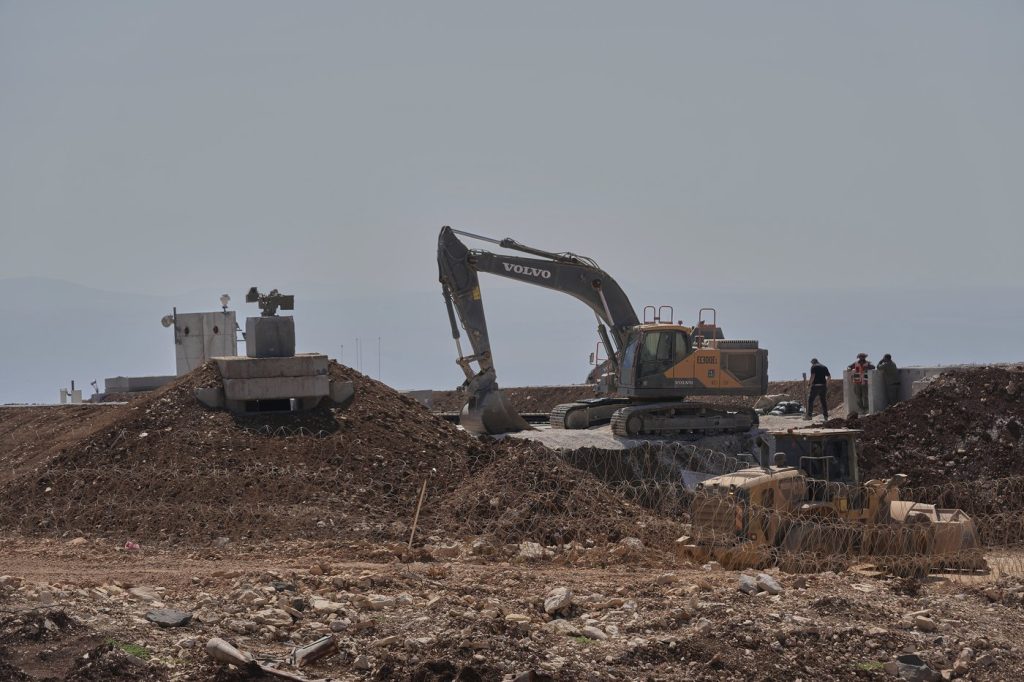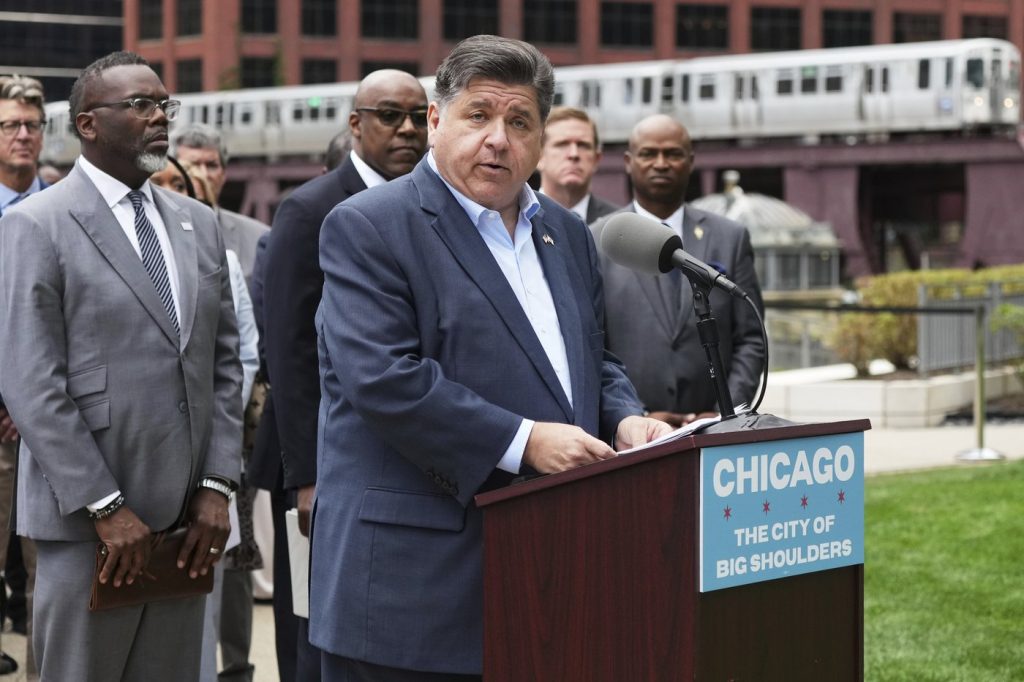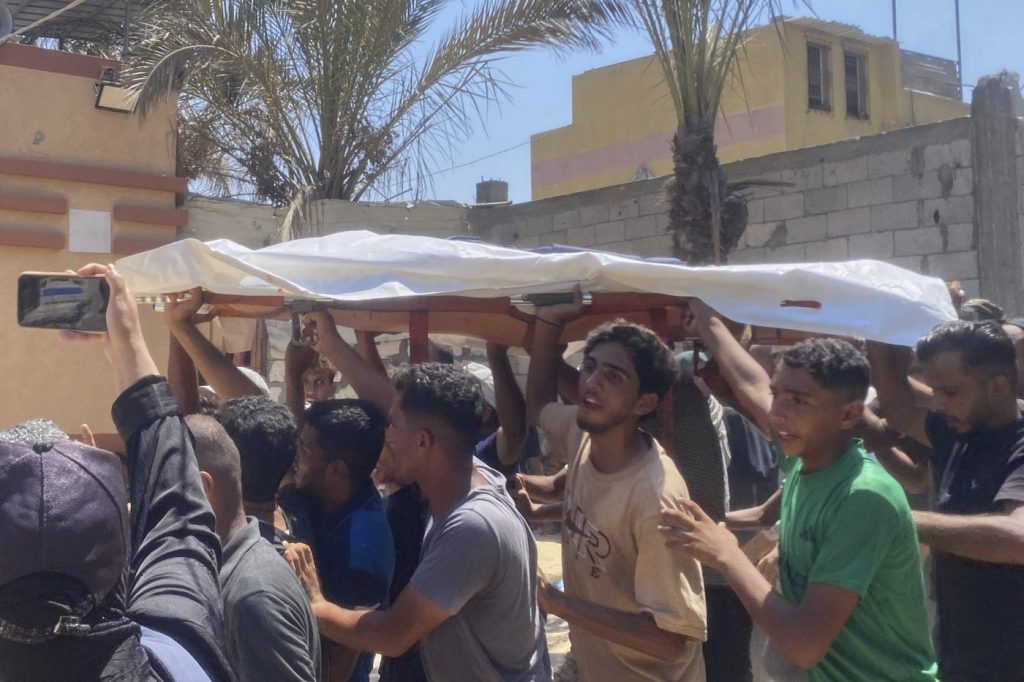JERUSALEM (AP) — Israeli Prime Minister Benjamin Netanyahu announced on Monday that Israeli forces may begin withdrawing from their occupied territories in southern Lebanon. This follows the Lebanese Cabinet's "momentous decision" earlier this month to pursue the disarmament of the militant group Hezbollah by the end of 2025.
Netanyahu indicated that if Lebanon takes the necessary steps to disarm Hezbollah, Israel will reciprocate with measures including a phased reduction of its military presence in southern Lebanon. Since the Israel-Hezbollah war concluded in November 2024 with a U.S.-brokered ceasefire, Hezbollah officials have refused to discuss disarmament until Israel withdraws from five strategic hills it controls within Lebanon and halts its frequent airstrikes, which have resulted in numerous casualties, predominantly among Hezbollah members.
Lebanon's Deputy Prime Minister Tarek Mitri expressed concern, stating that Israel has yet to fulfill its obligations under the ceasefire agreement. He asserted that Lebanon's stance is clear: Israel must cease hostilities and withdraw from Lebanon while releasing Lebanese prisoners.
Beirut is experiencing significant pressure from the U.S. to disarm Hezbollah, a group that recently engaged in a 14-month conflict with Israel and has suffered considerable losses among its leadership. The announcement regarding disarmament efforts comes following a visit from U.S. envoy Tom Barrack, who is working to uphold the ceasefire and press Lebanon to advance the disarmament process.
During his visit to Lebanon, Barrack stated that the "Lebanese government has done their part" and emphasized the need for "Israel to comply with that equal handshake." Lebanon seeks international support for reconstruction after the war, which devastated southern and eastern regions and caused an estimated $11.1 billion in damages according to the World Bank. However, such aid may depend on Lebanon's ability to disarm Hezbollah.
The Lebanese government is confronted with the necessity of exercising caution to prevent internal unrest. Naim Kassem, Hezbollah's secretary-general, has been vocal against disarmament efforts, warning that any attempts to force disarmament could provoke a civil conflict within Lebanon. Kassem has declared that the national government's decision to disarm the group by year's end serves Israel's interests and that Hezbollah will not give up its weapons without specific conditions being met first.
Kassem reiterated that Israel must first withdraw from Lebanon, cease its attacks, release prisoners, and allow the reconstruction of war-torn areas before discussions about Hezbollah's weapons can begin. He emphasized, "We will not give up the weapons that brought us honor," framing the weapons as integral to Lebanon's dignity and future.
In a pointed warning, Kassem claimed that the push for disarmament by the Lebanese government is driven by external pressures from the U.S. and Israel. He claimed that any effort to remove Hezbollah's weapons equates to an attack on Lebanon's identity and dignity.
Israeli officials have accused Hezbollah of attempting to rebuild its military capabilities and have stated that the five locations under their control offer strategic advantages. Since the end of the conflict, Hezbollah has reportedly withdrawn most of its forces and weapons from the border region with Israel south of the Litani River. However, there is ambiguity surrounding the terms of the ceasefire agreement regarding Hezbollah's military assets north of the Litani.
The ceasefire agreement vaguely delineates the scope of disarmament duties but indicates that Lebanese authorities should begin dismantling unauthorized military installations south of the Litani River. Hezbollah contends that the terms only pertain to that geographic area, whereas Israel and the U.S. assert that the group must disarm throughout Lebanon.
A low-level conflict ignited shortly after the Hamas-led attacks from Gaza on October 7, 2023, with Hezbollah firing rockets in solidarity with Hamas. This situation escalated into full-blown warfare in September 2024, resulting in over 4,000 fatalities.












